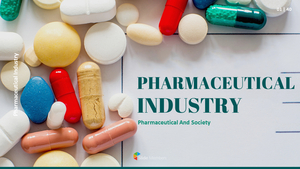- الكلمات - #pharmaceutical industry
-
- آخر تحديث ٢٢ فبراير، ٢٠٢٢ تعليق ٠ , ١٧٢ views, ٠ مثل
More from Hemarsh Technologies
More in Politics
Related Blogs
Main professions in the pharmaceutical industry
منشور من طرف Hemarsh Technologies
٢٢ فبراير، ٢٠٢٢
الجسم
Focusing on the production stage, carried out in the industry, we can mention professions aligned with research, development and testing of medicines.
The main ones are: pharmacist, biologist, biomedical, medical, chemical engineer and biotechnologist.
Shall we know more about them?
Pharmaceutical
With a degree in Pharmacy, this professional has in the research and development of medicines his most common area of expertise within the industry.
He applies his knowledge in the combination and tests with different substances, observing their reactions and effects, whether therapeutic or collateral.
It is also responsible for controlling production techniques, verifying factors such as dosage, temperature and conservation conditions of the compounds.
Biologist
From an in-depth understanding of tissues, organs and their organization into systems, the biologist can assist during the research and clinical testing phases of drugs.
During the undergraduate years, the studies topics relating to biophysics, biochemistry, cellular and molecular biology, genetics, immunology, microbiology and other fields of knowledge.
Biomedic
The degree in Biomedicine also allows you to work in the research and development stages of new compounds for the pharmaceutical industry.
However, while the professional trained in Pharmacy is more focused on chemical attributes and effects, the biomedical doctor pays attention to metabolic and immunological processes and the functioning of systems and organs.
For this reason, he is often at the pharmacist's side during the combination and study of new substances, verifying their impact on living organisms.
Doctor
It can provide consultancy for the research and selection of substances of organic or mineral origin, indicating their possible interaction with tissues and organs.
Chemical engineer
It operates from the stage of extraction of raw materials, as it has previous training on the possible results of its manipulation in industrial processes.
In the pharmaceutical sector, the chemical engineer applies techniques that lead to physicochemical transformations, generating new compounds, such as drugs with therapeutic effect.
Thus, it may be involved with the manufacture of the drug or its packaging.
biotechnologist
Having studied a combination of engineering, chemistry and biology, the biotechnologist is able to assess and apply the main technological trends to the drug production process.
It can also assist in the selection of substances with the potential to formulate new drugs.












تعليقات